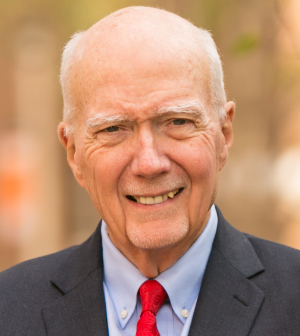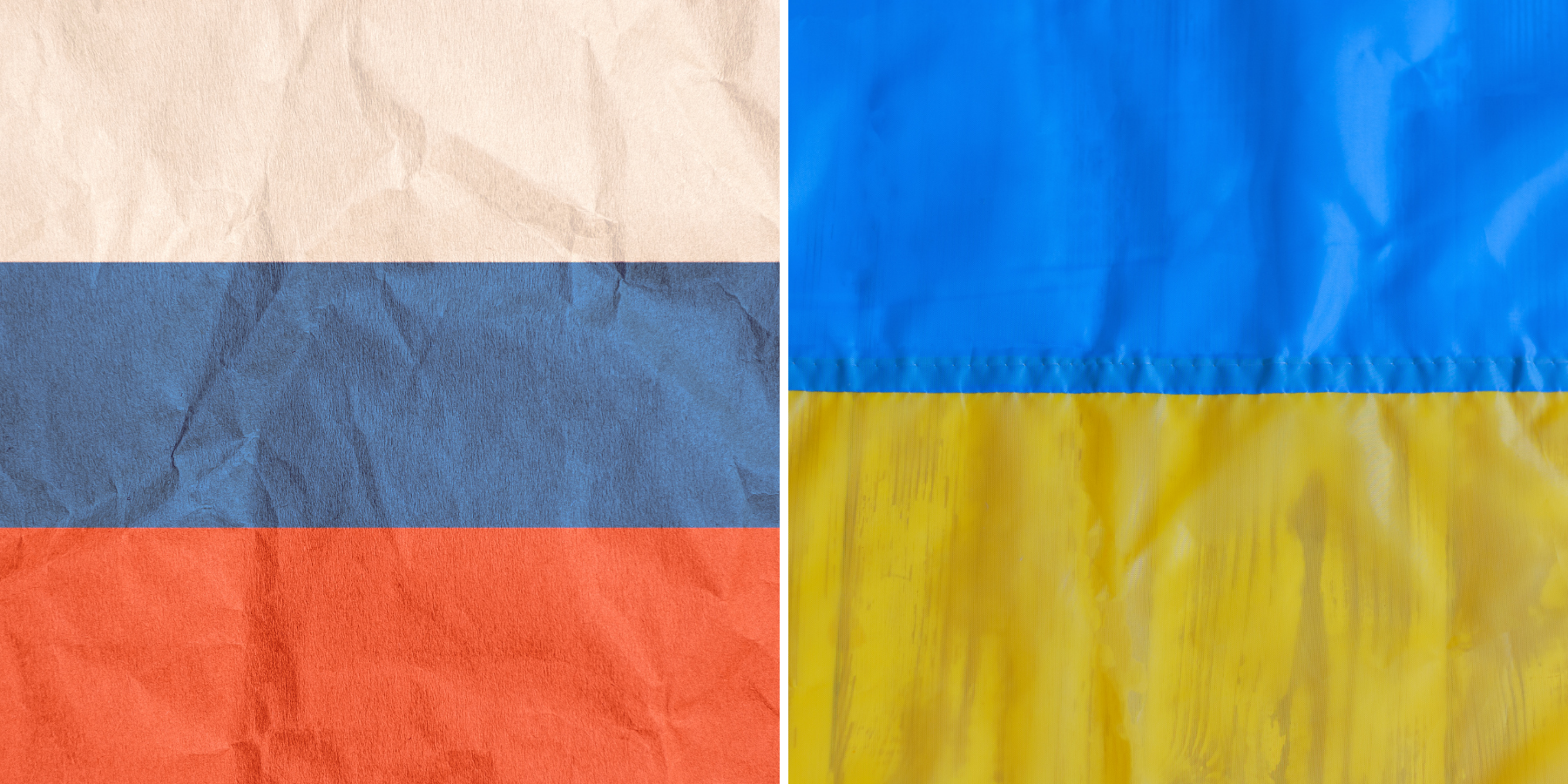Tension between Russia and Ukraine has existed for centuries, and time and again Ukrainians have resisted Russian rule. Now, the stakes are higher than ever, a Mercer University professor said.
“It is a conflict between … an authoritarian world and a democratic world,” Distinguished University Professor of History Dr. Wallace Daniel, a leading scholar of Russian history, said during a panel discussion, “Perspectives on the Russia/Ukraine Conflict,” hosted by the College of Liberal Arts and Sciences on March 1.
To understand the conflict today, Dr. Daniel took the audience back through Russian and Ukrainian history and explained, why now, in 2022, Russia has chosen to attack.
Ukrainians are ‘freedom-loving people’
In the 10th century, the area now known as Russia was part of an immense territory ruled by the Kievan prince. Over the 12th and 13th centuries, the Kievan principality declined, and Moscow became the area’s cultural center.

In the 17th century, Russia signed a treaty with what we now know as Ukraine.
According to Russian historians, Ukraine had a choice between Poland and Russia, and Ukraine chose to be incorporated into Russia. But Ukrainian historians dispute that account, saying Ukraine was coerced into signing with Russia, and the incorporation was supposed to be temporary.
“Russia, of course, decided that that would be permanent,” Dr. Daniel said.
Russia ruled Ukraine for the next 250 years, “but that rule was very difficult and often unruly,” he said.
“Ukrainians were independent. They were freedom-loving people,” he said. “Two of the greatest (peasant) rebellions in Russian history began in Ukraine.”
In 1930, when Soviet leader Joseph Stalin initiated his collectivization of agriculture program, Ukrainian peasants chose to burn their crops and slaughter their livestock rather than turn them over to the Soviet state. This led to one of the greatest famines of the 20th century, Dr. Daniel said.
Then, in 1991, Ukraine announced its independence from the Soviet Union.
“The entire 1990s would be a time of transition in Ukraine,” Dr. Daniel said. “It proclaimed its independence, but it also at the same time remained politically close to Russia.”
It wouldn’t stay that way for long.
In 2014, 800,000 Ukrainians protested the government on Maidan Square and elsewhere in Kyiv, and ultimately the Russian-backed president fled in the night. Over 100 people were killed in the uprising.
“The biggest thing about that, what I’ve just said, is what one of the protestors said afterward,” Dr. Daniel said. “He said, ‘The biggest thing, the most crucial thing, is that we define the direction we want (Ukraine) to take. The simple fact is that we do not want to be part of a satellite state.”
Ukrainians then elected Volodymyr Zelenskyy as their president, and he remains in that position today.
Why did Russia invade now?
Given that history, Dr. Daniel gave three reasons why Russian President Vladimir Putin invaded Ukraine on Feb. 24.
First, Putin’s goal is to return Russia to a great power status, and he cannot afford to have an independent Ukraine on his border that he cannot manipulate.
Putin has “long said that what he wants to create is a Eurasian union composed of Russian speaking people in which he, Russia, would lead. That would counterbalance what he sees as an Asian union led by China and an Atlantic union led by the United States. And that would be the future at least as he has tried to define it,” Dr. Daniel said. “He has to have a pliable Ukraine in order for that to happen, or he has to destroy Ukraine for that to happen.”
Second, by 2021, Putin realized that his efforts to back separatist provinces in Ukraine had failed, as did his attempts at diplomacy.
“And when that fails, in his mind, what do you do? Turn to the cannon and the gun, to the naked use of force,” Dr. Daniel said. “And he is now taking a gamble that a military campaign will succeed when nothing else will.”
Third, having an emerging democratic society on Russia’s border that is allied with Western democracies is deeply threatening to Putin’s authoritarian government.
“Stakes here are huge,” Dr. Daniel said. “They are huge for him, and they are huge for the world.”
Putin is taking an enormous risk, he said.
“If he wins, if he weathers this storm, it will be at great cost to people there and elsewhere in both Russia and Ukraine, but it will move him much closer to that goal that I defined at the beginning,” Dr. Daniel said. “If he loses, if the Russian people fail to back him, it will eventually lead to his end and the end of his regime. Personally, I hope this latter will prevail.
“But the stakes could not be higher.”










